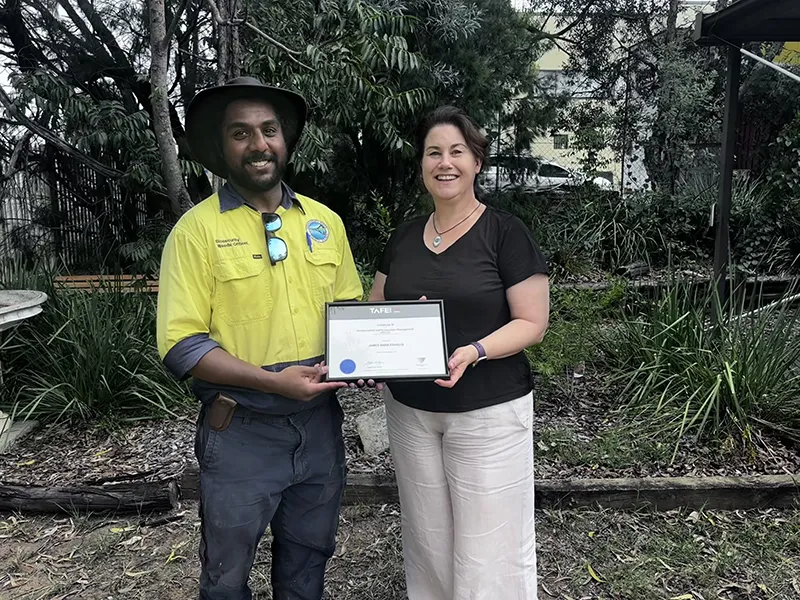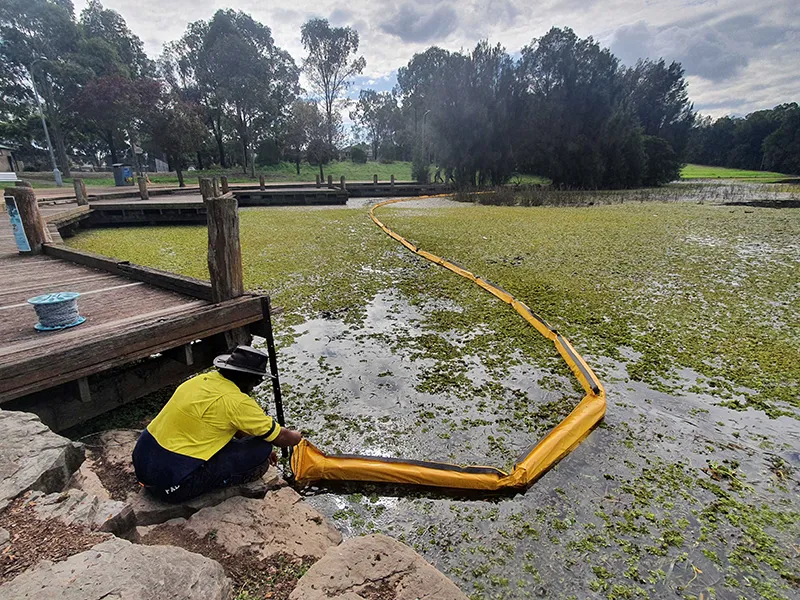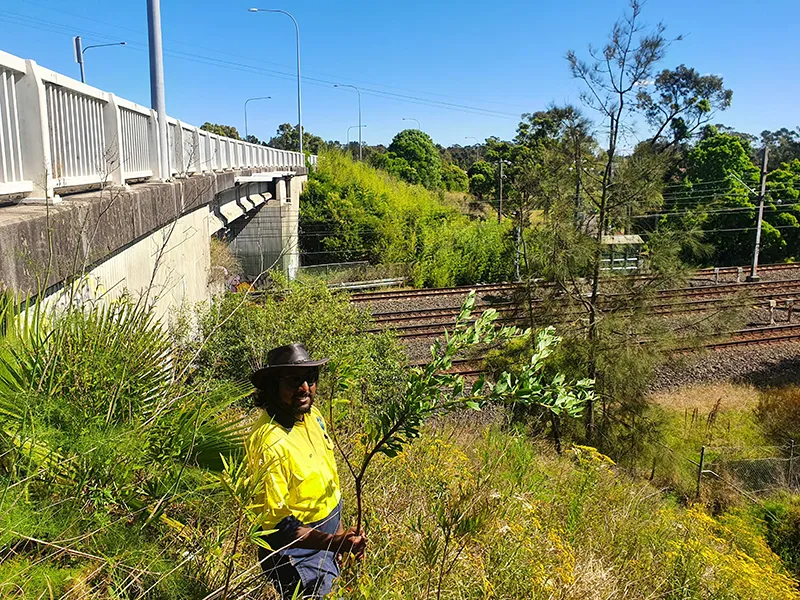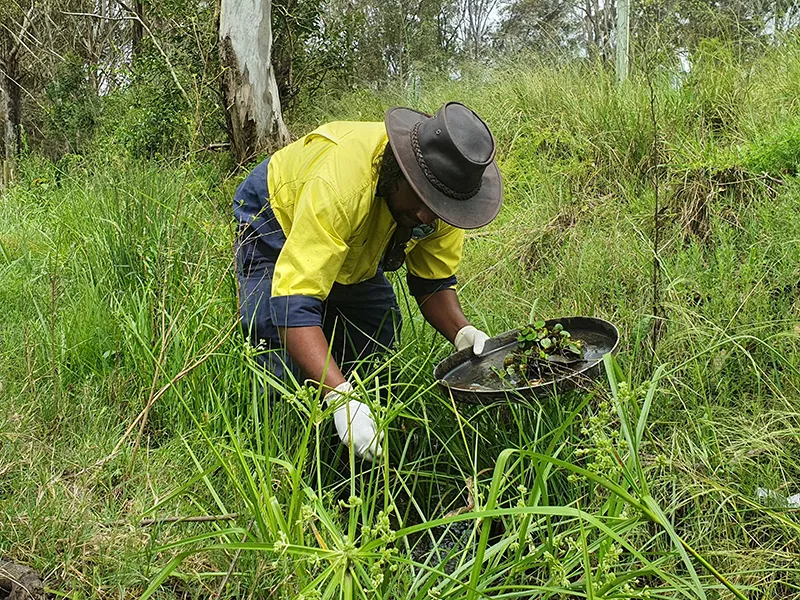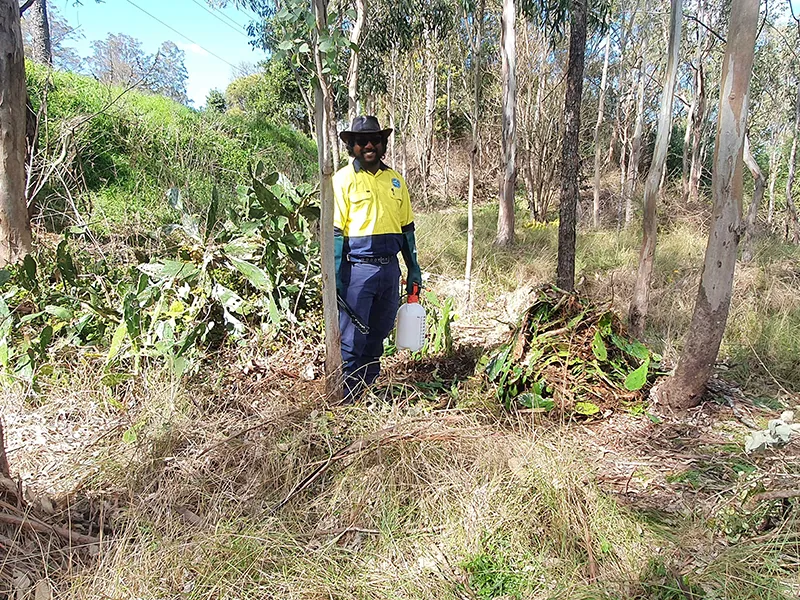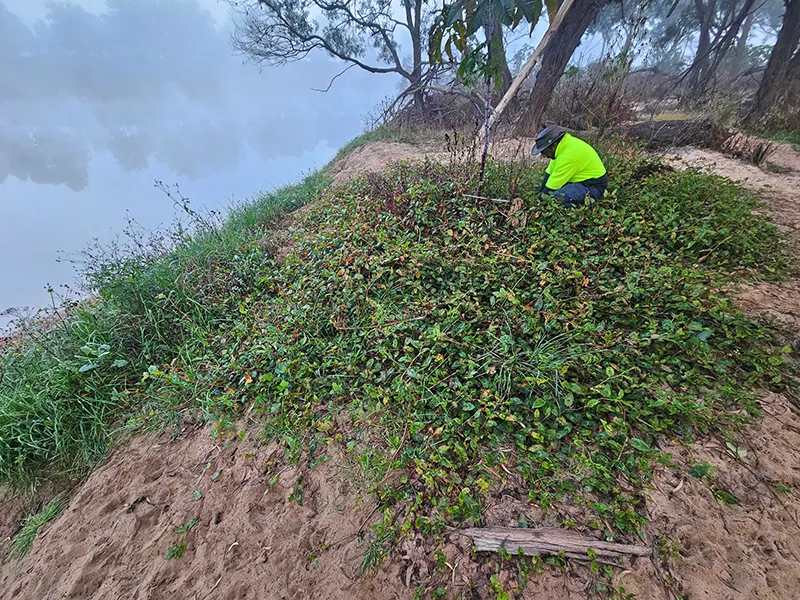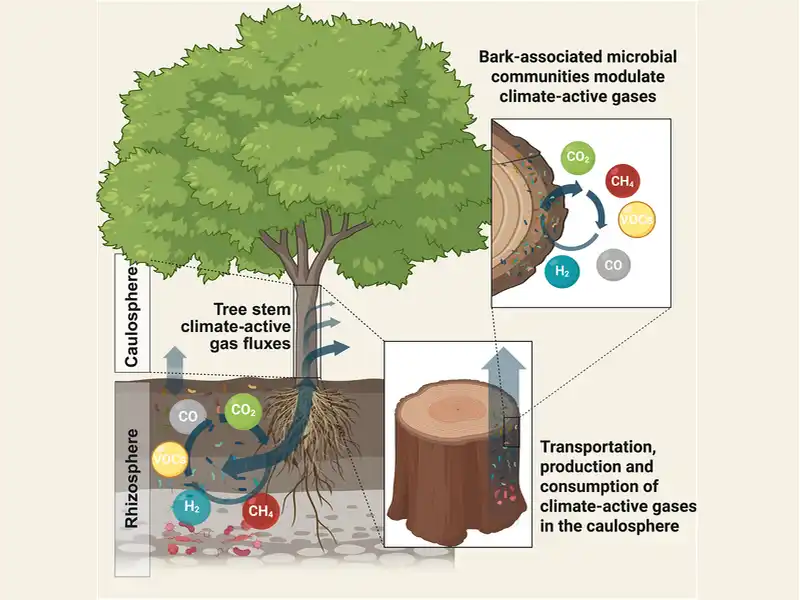PRESS RELEASE
26 February, 2025
COUNTY COUNCIL GROWS ITS OWN TALENT AMID SHORTAGE OF WEED CONTROL STAFF
WESTERN SYDNEY, NSW: As Australia’s bushland regenerationand weeds management sector faces a shortage of qualified staff, innovative traineeships are being used to create pathways into this growth sector.
Invasive weeds remain a nationwide problem, exacerbated by the effects of climate change such as heavy rainfall and flooding. Priority weeds pose a particular risk to our primary industries, costing farmers an estimated $1.5 billion in lost agricultural production every year.
Hawkesbury River County Council (HRCC) represents four key local Councils in Western Sydney and is responsible for weed management within the Hawkesbury-Nepean region. HRCC’s General Manager, Chris Dewhurst, says that more staff are now needed to tackle weeds – and the weed control workforce has grown exponentially as a result.
“I would say the weeds management sector has at least doubled in size in the last 25 years. This is mostly due to an increasing awareness of the impact of invasive species on both the environment and economy,” said HRCC’s General Manager, Chris Dewhurst.
Despite remaining a small industry, weeds management requires highly specialised labour, leading to staff shortages. Time-intensive training can be a barrier to entry for many, with Weed Control Officers requiring TAFE credentials and other specialised certifications that can take a year or more to complete.
To drive recruitment, HRCC has offered hands-on weed control traineeships for over 12 years – an opportunity for would-be weeds managers to kick-start their careers. HRCC has trained over 19 graduates since 2012, and all have careers within the sector.
“Our traineeship program is unique to HRCC. Given how specialised the sector is, it’s difficult to recruit qualified staff for weed control roles, so we like to say we grow our own by taking people on board and helping them build their skills – with the option to stay and work with us once they’ve completed the program,” said Chris.
Weeds management offers a highly fulfilling career path for those looking to work in the natural environment.
“Every day brings something different at HRCC – whether it’s identifying and removing different weed species, investigating properties for prohibited plants, or providing practical weed control advice to the local community,” said Chris.
“Anyone who’s interested in entering the weeds management sector will find that it’s an incredibly rewarding career. Not only are there opportunities for growth and progression, but the work is critical for our environment, and many find the opportunity to work in nature a major drawcard,” he added.
CASE STUDY: JAMES FRANCIS, WEED CONTROL OFFICER
Before his career change, 31-year-old James Francis was working in the corporate sector as a debt collector – a job which he found deeply unfulfilling.
“I was something of a ‘digital bounty hunter’. If people owed the company money, it was my job to find them online and get in touch with them. This job wasn’t a good fit for me – I was working in a concrete jungle disconnected from nature, and it made me realise that above all else, I wanted my career to have a positive impact on the world around me,” said James.
As a lover of hiking and bushwalking, James enrolled to study Conservation and Ecosystem Management at his local TAFE in Richmond.
The course was offered under the NSW Government’s Fee-Free TAFE initiative, which provides free courses relating to industries that are facing skills shortages.
While he waited for the course to commence, he discovered that Hawkesbury River County Council’s Windsor depot was just minutes away from his home – and that they offered a flexible program where he could work as a Weed Control Trainee while completing his study.
At TAFE, James learned essential skills like plant identification, environment types and different weed control techniques. Out in the field, he supported HRCC’s Weed Control team by surveying land, applying pesticides and contributing to regular reporting.
“My TAFE course began eight months into my traineeship, so thanks to HRCC, I had a head-start and had already built some industry knowledge. Once the course began, I could put all the theory I had learned into practice,” he added.
Once James completed the one-year traineeship, he quickly ascended the ranks. Now second in command within the weed control team, he helps lead the other Weed Control Officers in the field, contributes to planning and reporting, and ensures that his team complies with work health and safety guidelines.
HRCC has taken on two more Weed Control Trainees since James completed the program, and he now offers them guidance during field work. As the program continues, he expects more and more trainees to sign up.
“I’m really happy with my career change. Entry into my TAFE course was very competitive due to the high demand for training, which goes to show how quickly weed control, bush regeneration and conservation are growing as professions,” said James.
—ENDS—
Media information:
The PR Partnership
Karen Gampenov | 0411 795 131 | karen@prpartnership.com.au
Stella Dearing | 0450 589 480 | stella@prpartnership.com.au

